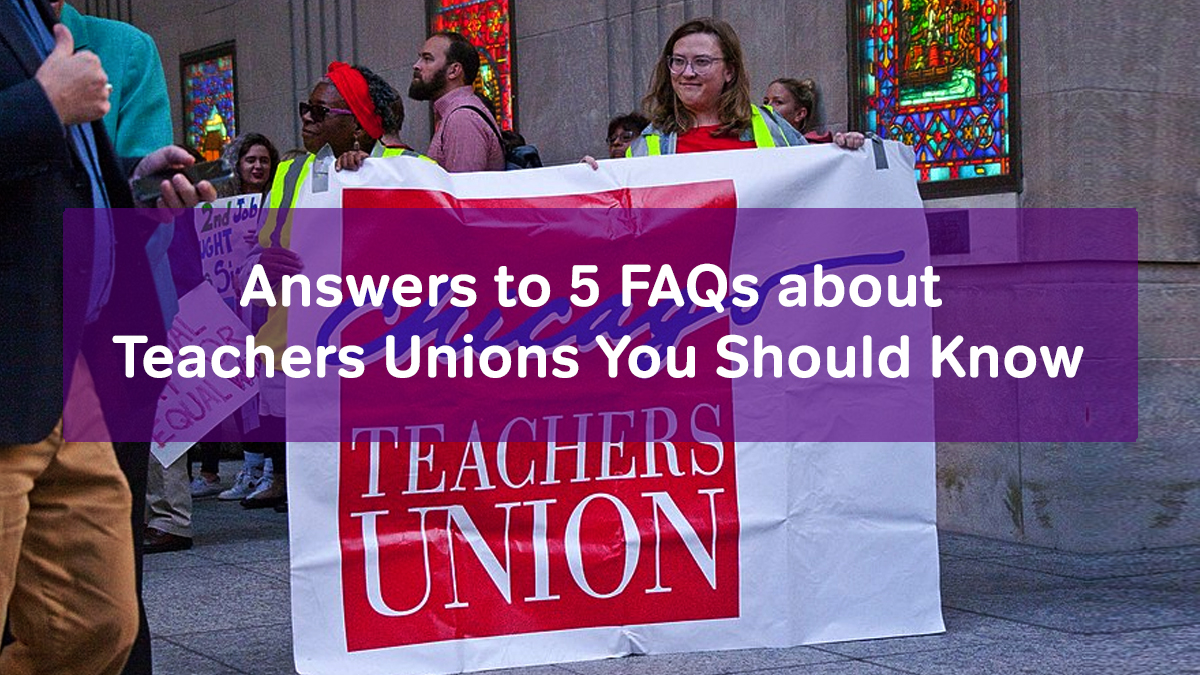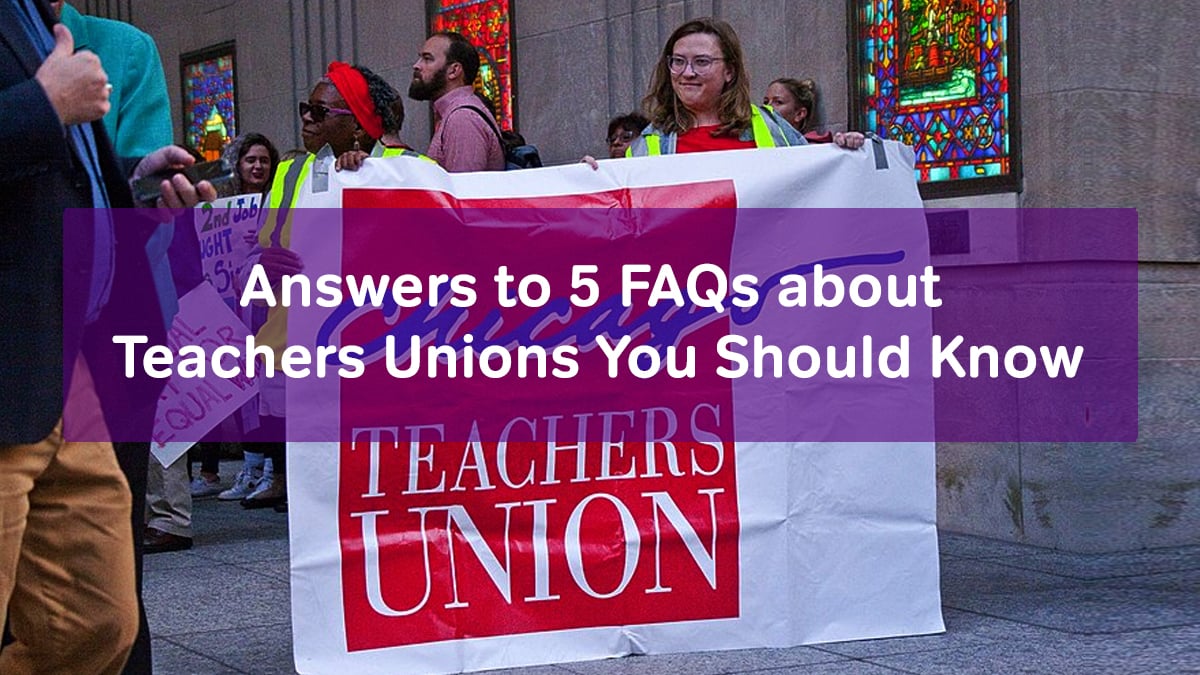2 min read
Answers to 5 FAQs about Teachers Unions You Should Know
![]() Jamie Goodwin
:
Mar 11, 2019 2:37:00 AM
Jamie Goodwin
:
Mar 11, 2019 2:37:00 AM

When first entering the field, you hear a lot about teachers unions. And depending on where you teach, you may be forced to pay dues to the union. If not, you need to decide whether or not to join. While making this decision, here are answers to frequently asked questions that may help you.

What Are the Benefits of Joining a Teachers Union?
In a society full of lawsuit-happy people, being a teacher can be daunting. You don’t want to find yourself at the wrong end of a legal battle without someone to advise you. A teachers union not only provides legal protection, but many of them have hotlines that teachers can contact with any questions or concerns they have about their contract, dealing with accusations from a parent, and more.
Some of the other benefits to joining a union include getting assistance with contract and labor negotiations, getting a voice on educational topics in politics, and discounts for things like life insurance policies, mortgage payment help, and credit card deals.
What Are the Drawbacks to Joining a Teachers Union?
The teachers union is responsible for giving you a voice on education topics and helping you negotiate contracts. But what if you don’t agree with the union’s politics? If this is the case, you don’t want them speaking on your behalf.
Also, the dues for teachers unions are expensive. Especially with what starting teachers make, giving up part of their paycheck can make their budget extra tight. If they’re interested in joining a teachers union, they may choose to wait until they’ve been working for a few years and can afford to pay the dues.
Do I Have a Choice in Whether to Join One or Not?
Yes. However, some states force you to pay a fee if you’re not in the union in order to continue to work there. The states that require you to do this include:
- Alaska
- California
- Connecticut
- Delaware
- Hawaii
- Illinois
- New York
- Ohio
- Oregon
- Pennsylvania
- Rhode Island
- Washington
- Wisconsin
Many teachers say that they feel pressure from other teachers to join a union. As a new teacher, don’t be afraid to ask other teachers about their experience with their union. But do your own research and determine for yourself whether or not you want to join.
Are Teachers Unions Only for Teachers?
Although the majority of professionals within teachers unions are teachers, anyone working within the school can join. This includes administrators, administrators’ assistants, custodians, maintenance workers, bus drivers, cafeteria personnel, school nurses, retired teachers, and substitute teachers. College students studying education can also join a union before they graduate and get certified to teach.
Which Union Should I Join?
There are several options for teachers unions, and the one to join may depend on the district in which you work. Local unions are typically affiliated with state and national chapters. Of the national unions, the 2 biggest are the National Education Association (NEA) and the American Federation of Teachers (AFT). When it comes to policies, the NEA typically takes a democratic stand and the AFT takes a republican stand. Learn more about the teachers unions within your district, and choose one that will best suit your needs and ideology.


